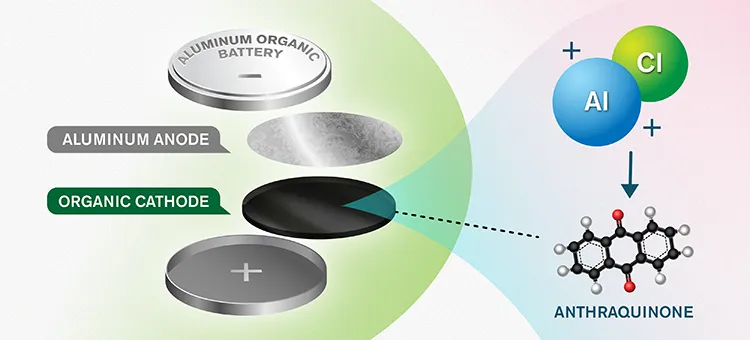New aluminum batteries for renewables storage
Sep 30, 2019 05:08 PM ET
- The devices, developed by a European research team, are said to have twice the energy density of conventional aluminum devices. The scientists used a cathode made of anthraquinone, instead of one based on graphene, increasing energy density.

Scientists from Sweden’s Chalmers University of Technology and Slovenia’s National Institute of Chemistry say they have created aluminum batteries with higher energy density and potentially wide renewable energy storage applications.
Compared to typical aluminum batteries, which use an aluminum anode and graphene cathode, the new device features an organic, nanostructured cathode made of carbon-based molecule anthraquinone.
In the paper Concept and electrochemical mechanism of an Al metal anode ‒ organic cathode battery, published in Energy Storage Materials, the researchers explained anthraquinone enables storage of positive charge-carriers from the electrolyte, ensuring their device has twice the energy density of conventional aluminum batteries. “Because the new cathode material makes it possible to use a more appropriate charge-carrier, the batteries can make better usage of aluminum’s potential,” the researchers stated.
Chlorine
The current version of the electrolyte, however, contains chlorine the research team wants to eliminate.
The scientists claim, although aluminum storage technology is a long way from commercial production, the new device will be able to compete or complement lithium-ion storage. “So far, aluminum batteries are only half as energy dense as lithium-ion batteries but our long-term goal is to achieve the same energy density,” stated the paper.
Aluminum in principle works better than lithium-ion as a charge carrier, according to the research group. “Furthermore, the batteries have the potential to be significantly less environmentally harmful,” said research co-author Patrik Johansson.
Also read

